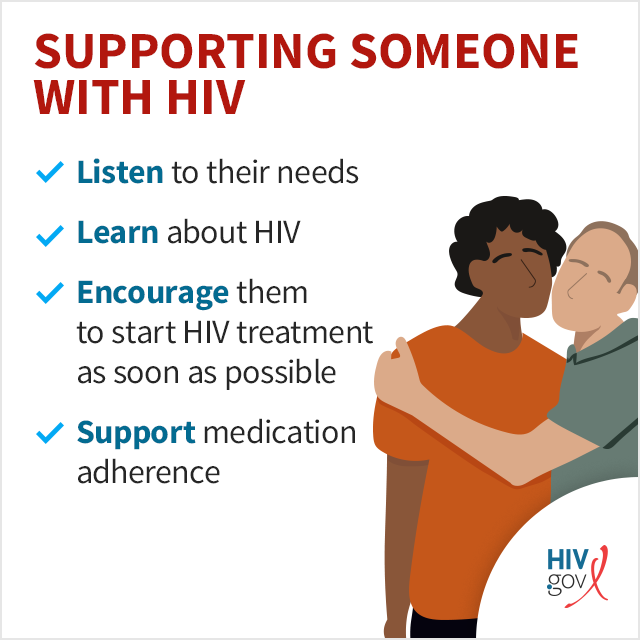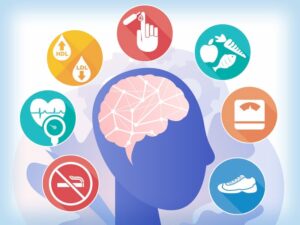Physical Address
304 North Cardinal St.
Dorchester Center, MA 02124

Building supportive communities for individuals living with HIV/AIDS is crucial in providing emotional and practical support to enhance their quality of life and reduce stigma. These communities offer a safe space for sharing experiences, information, and resources, fostering a sense of belonging and acceptance among the members.
Along with healthcare professionals and advocacy organizations, individuals living with HIV/AIDS can actively participate in building these communities to address the unique challenges they face and ensure equitable access to healthcare and social support. By building supportive networks, these individuals can gain empowerment, resilience, and improved overall well-being, ultimately contributing to a more inclusive and compassionate society.

The first step in building supportive communities for individuals living with HIV/AIDS is to develop an understanding of the condition. HIV, which stands for Human Immunodeficiency Virus, is a virus that attacks the immune system, specifically the CD4 cells. AIDS, which stands for Acquired Immunodeficiency Syndrome, is the final stage of HIV infection.
HIV is transmitted through specific body fluids, such as blood, semen, vaginal fluids, and breast milk. It can be passed from one person to another during unprotected sex, sharing needles or syringes, through mother-to-child transmission during birth or breastfeeding, and rarely, through occupational exposure.
Once a person becomes infected with HIV, the virus gradually weakens the immune system, making it harder for the body to fight off infections and diseases. When HIV is left untreated, it can progress to AIDS, a condition characterized by a severely weakened immune system.
HIV/AIDS has had a significant impact on a global scale. According to the World Health Organization (WHO), approximately 38 million people worldwide were living with HIV/AIDS in 2019. The majority of these individuals reside in low- and middle-income countries, with sub-Saharan Africa being the most affected region.
Widespread stigma and discrimination surrounding HIV/AIDS have hindered efforts to control the epidemic and provide necessary support and care to affected individuals. It is crucial to address these stigma-related barriers to ensure that those living with HIV/AIDS are not only medically supported but also embraced by their communities.
To create supportive communities, education is key. Raising awareness about HIV/AIDS can help dispel myths and misconceptions, reduce stigma, and foster empathy and understanding. Through accurate and accessible information, people can become empowered to support those living with HIV/AIDS and contribute to a more inclusive and compassionate society.

Credit: www.thelancet.com
A support system plays a crucial role in the lives of individuals living with HIV/AIDS. It provides them with the emotional, medical, and community support they need to navigate the challenges they face on a daily basis. Building a supportive community ensures that individuals feel cared for, understood, and empowered to manage their condition effectively. In this article, we will explore the significance of having a strong support system in place for individuals living with HIV/AIDS, covering emotional support, medical support, and community support.
Living with HIV/AIDS can take a toll on an individual’s mental and emotional well-being. The stigma surrounding the virus can lead to feelings of shame, guilt, and isolation. Having a strong emotional support system can help alleviate these negative emotions and provide individuals with a safe space to express their fears, concerns, and anxieties.
Emotional support can come from various sources, such as:
Receiving proper medical support is crucial for the overall well-being of individuals living with HIV/AIDS. This support encompasses regular medical check-ups, access to antiretroviral therapy (ART), and ongoing monitoring of the virus’s progression.
Some aspects of medical support include:
Building a strong sense of community is essential for individuals living with HIV/AIDS as it fosters a support network and creates a safe and inclusive environment where individuals feel accepted and understood.
| Types of community support: | |
| 1. Non-profit organizations: | These organizations play a crucial role in providing resources, education, advocacy, and support for individuals living with HIV/AIDS. |
| 2. Peer support: | Connecting with others who have lived experience with HIV/AIDS can be incredibly empowering and reassuring. Peer support groups offer individuals the opportunity to seek advice, share personal stories, and find solidarity. |
| 3. Community events: | Participating in community events and initiatives can help individuals feel a sense of belonging, combat social isolation, and raise awareness about HIV/AIDS. |
When it comes to living with HIV/AIDS, having a strong support system is vital. Surrounding yourself with individuals who understand your journey and can offer guidance and empathy can make a significant difference in your overall well-being. In this article, we will explore various supportive resources that can help you navigate the challenges of living with HIV/AIDS.
Support groups provide a safe space where individuals living with HIV/AIDS can connect, share experiences, and receive emotional support. These groups bring together people who understand the unique challenges of living with this condition, creating a supportive community. Here are some benefits of joining a support group:
Support groups can be found at community centers, clinics, or through HIV/AIDS organizations. It’s important to find a group that suits your needs, whether it’s focused on a specific demographic, such as LGBTQ+ individuals or women, or a general support group for everyone living with HIV/AIDS.
Accessing counseling services can be an integral part of building a supportive community. Professional counselors who specialize in HIV/AIDS related issues can provide valuable guidance, emotional support, and coping strategies. Here are a few reasons why counseling services can be beneficial:
You can find counseling services through HIV/AIDS clinics, community health centers, or by reaching out to local mental health organizations. Make sure to choose a counselor who has experience working with individuals living with HIV/AIDS.
Online communities play a crucial role in connecting individuals living with HIV/AIDS from all around the world. These communities provide a platform to share experiences, seek advice, and find support even from the comfort of your own home. Here are some advantages of engaging in online communities:
You can find online communities through forums, social media groups, or dedicated platforms specifically designed for individuals living with HIV/AIDS. It’s important to ensure that the online community you choose is secure, reputable, and moderated to maintain a positive and supportive atmosphere.
Building a supportive community for individuals living with HIV/AIDS starts with educating friends and family. It is crucial to address myths and misconceptions surrounding the condition and share personal experiences to foster understanding and empathy. By doing so, we can create an environment that is inclusive and supportive for those affected by HIV/AIDS.
One of the first steps in educating friends and family about HIV/AIDS is to dispel any myths or misconceptions they may have. This can be done by providing accurate and up-to-date information about the condition. Some common myths that need to be addressed include:
Providing clear and concise information to debunk these myths can help friends and family members better understand the realities of living with HIV/AIDS. This knowledge will help create a supportive environment that is free from judgment and stigma.
In addition to addressing myths and misconceptions, sharing personal experiences can be a powerful tool in educating friends and family about HIV/AIDS. When individuals living with HIV/AIDS share their stories, it humanizes the condition and helps others empathize with their struggles and triumphs.
Sharing personal experiences can be done through different mediums, such as:
By sharing personal experiences, individuals living with HIV/AIDS can provide an intimate understanding of what it’s like to live with the condition, including the difficulties they face and the support they need from their friends and family.
Building supportive communities for individuals living with HIV/AIDS is essential in ensuring their well-being and overall quality of life. One crucial aspect of creating such communities is the establishment of a safe and inclusive environment, where individuals feel respected, accepted, and supported. This environment plays a significant role in promoting empowerment, fostering connections, and providing access to resources that can positively impact the lives of those affected by HIV/AIDS.
Stigma and discrimination surrounding HIV/AIDS continue to be major barriers that hinder individuals’ ability to seek care, support, and live healthy lives. It is imperative to address and challenge such attitudes and behaviors within our communities. By taking targeted actions to eliminate stigma and discrimination, we can create an environment where people feel safe to disclose their HIV status, seek treatment, and engage in open conversations without fear of judgment or prejudice.
Some ways to combat stigma and discrimination include:
Empathy and understanding are crucial elements in fostering a safe and inclusive environment. When individuals in a community empathize with those living with HIV/AIDS, they can break down barriers and build meaningful connections. Promoting empathy involves recognizing and acknowledging the challenges faced by individuals with HIV/AIDS, offering support, and treating them with dignity and respect.
Some ways to promote empathy and understanding include:
:max_bytes(150000):strip_icc()/Hiv-and-mental-health-5211903_final-8b53d3b2629c440bb35b9150e7299134.jpg)
Credit: www.verywellhealth.com

Credit: www.hiv.gov
Supportive communities provide emotional support, reduce isolation, and help individuals access resources like healthcare, counseling, and education.
Supportive communities play a crucial role in raising awareness, providing education, promoting safe behaviors, and reducing stigma around HIV/AIDS.
Individuals can find supportive communities through local HIV/AIDS organizations, support groups, online forums, social media platforms, and healthcare providers.
Connecting with others helps reduce feelings of isolation, provides emotional support, encourages adherence to treatment, and promotes a sense of belonging and empowerment.
Building supportive communities for individuals living with HIV/AIDS is crucial for their overall well-being and quality of life. By fostering understanding, empathy, and acceptance, these communities can provide the necessary emotional and practical support. Through education, awareness campaigns, and advocacy, we can reduce stigma and discrimination.
Together, we can create a safe and inclusive environment where everyone can thrive. Let’s join hands in building a compassionate society that uplifts and empowers those affected by HIV/AIDS.

